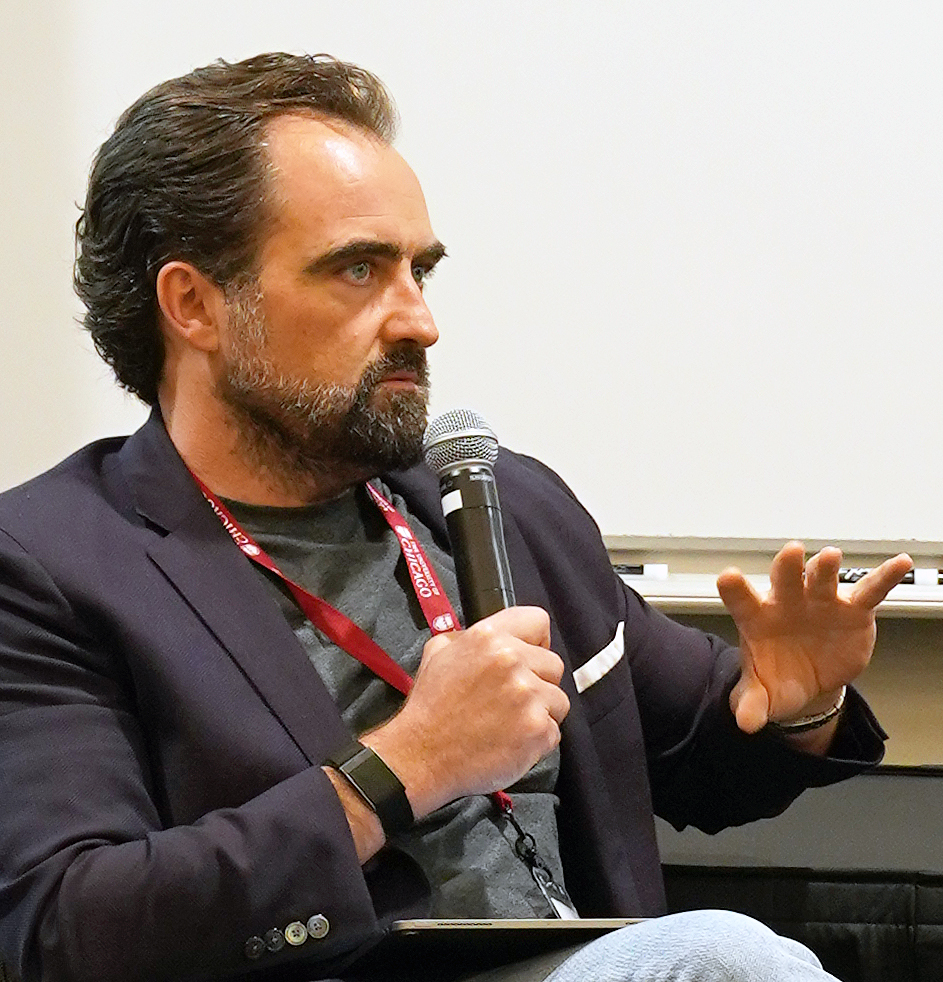Since the 1970s, finance has undergone a profound metamorphosis due to the converging forces of innovation and economic liberalization.
Technological breakthroughs—such as electronic trading, the internet, and quantitative modeling—have revolutionized operations and capabilities. Simultaneously, globalization has connected markets, regulatory reforms have reshaped frameworks, and academic research has transformed financial theory and practice. These intertwining factors have redefined the very essence of finance and fundamentally transformed how value gets created in the global economy.
Today, the fusion of finance and cutting-edge technology continues to reshape the core of strategic financial management. This shift comes with dual implications: complex challenges that demand innovative solutions, and unprecedented opportunities to transform industry practices. For financial professionals and institutions, success now depends on rapidly adapting to technological change while integrating digital competencies with deep financial expertise.
Looking ahead, finance will likely become even more interconnected, blending traditional banking with fintech innovations and embedded financial services. This evolution promises greater personalization and access, but also raises pressing concerns around privacy, security, and financial stability. Today’s financial leaders are already navigating this complex terrain, but many lack the up-to-date skills required to fully harness its potential and mitigate its risks.
The New Frontier of Financial Risk
The concept of financial risk is taking on new dimensions as digitization saturates every corner of the monetary landscape. Traditional risk models, which have served as the foundation of financial decision-making for decades, are increasingly failing to capture the complexities of the globalized economy. The proliferation of complex derivatives and structured products, along with decentralized finance (DeFi) and algorithmic trading, has introduced a new layer of volatility and unpredictability to the financial ecosystem.
Flash crashes, for instance, though not new, have become more menacing in today’s hyper-digitized markets. Interconnected systems can spread these sudden plunges across multiple assets at lightning speed, while advanced algorithms and high-frequency trading amplify their potential frequency and impact.
Meanwhile, as digitization deepens, the finance sector becomes more vulnerable to sophisticated cyberattacks, with large-scale data breaches, financial fraud, and the manipulation of market-critical information increasingly prevalent as the attack surface expands. This evolving threat landscape is forcing a fundamental reevaluation of risk management paradigms across finance, where cybersecurity is no longer just an IT concern, but a core strategic imperative.
What’s more, the recent inflationary period and subsequent rate hikes have further complicated the risk landscape. As central banks pivot toward easing monetary policy, financial professionals are reassessing strategies developed in a low-rate environment. The challenge lies in adapting to both immediate rate fluctuations and longer-term structural changes, requiring flexible models that can navigate this evolving economic terrain while accounting for digitization’s ongoing impact.
Opportunity in Disruption
While the evolving risk landscape presents significant challenges, it also opens up unprecedented opportunities for innovation and growth. In many cases, the same technologies and trends that are disrupting traditional financial models are also providing the impetus to create more efficient, transparent, and inclusive financial systems. Here are five key areas where this is taking place today:
- AI and machine learning are reshaping finance across multiple fronts. In market analysis, these technologies uncover hidden patterns to power adaptive trading strategies that evolve with market conditions. AI enables hyper-personalized financial products by creating dynamic customer risk profiles; meanwhile, for risk assessment, it processes diverse data sources—from financial news to satellite imagery—to expand the scope of evaluation. AI-driven algorithms also reshape market microstructure by executing complex trades at unprecedented speeds. While these advancements are driving finance toward the holy grail of real-time, data-driven decision-making, they also raise new challenges for maintaining human oversight across an increasingly automated ecosystem.
- Fintech is blurring traditional industry boundaries by integrating banking functions with technology platforms and everyday digital interactions. It harnesses AI, cloud computing, and advanced analytics to enable hyper-personalized, customer-centric financial services. This technological fusion democratizes access to sophisticated financial tools, making advanced banking capabilities available to previously neglected market segments. While this transformation promises increased efficiency and tailored solutions, it also puts the pressure on incumbents—such as banks, insurance companies, and credit card companies—to rapidly evolve their business models and technological capabilities.
- Blockchain transforms cross-border payments and derivatives trading with its decentralized, immutable ledger. It enhances transparency, reduces fraud, and cuts intermediation costs. Tokenization—the digital representation of real-world assets—creates new opportunities in asset management and makes fractional ownership of traditionally illiquid assets possible. Meanwhile, smart contracts automate complex financial agreements, reducing risk and speeding up settlements. Institutions at the forefront of blockchain adoption are poised to dominate in emerging DeFi markets, potentially rendering traditional intermediaries obsolete and redrawing the boundaries of the financial sector.
- Behavioral finance continues to recast traditional financial models by exposing the myth of the rational investor. It weaponizes psychological insights to craft more effective financial products and strategies. For example, loss aversion drives the creation of asymmetric payoff structures, catering to clients’ emotional biases while optimizing risk-adjusted returns. By leveraging the power of default options, institutions have dramatically boosted retirement savings rates, reshaping long-term financial behaviors. Recognition of market-wide cognitive biases, such as herding, enables sophisticated players to exploit systematic pricing anomalies. Moreover, the strategic application of framing effects has transformed financial communication, enhancing both individual decision-making and overall market efficiency.
- Quantum computing is preparing to shatter the limits of financial modeling and optimization. Its ability to process vast combinatorial problems could completely reshape risk management and make use of real-time simulations at unprecedented scales. In algorithmic trading, quantum algorithms may uncover hidden market patterns, potentially transforming market microstructure and liquidity dynamics. At the same time, the technology’s cryptographic implications are double-edged: While threatening to break current encryption standards, it also promises unhackable quantum key distribution for financial transactions. Forward-thinking institutions are already building quantum-ready frameworks, recognizing that early quantum advantage could redefine competitive landscapes and reshape global financial markets.
The Path Forward
Continuous upskilling is essential to thrive in today’s fast-evolving financial environment. The Professional Certificate in Strategic Financial Management at the University of Chicago Professional Education (UCPE) meets this need with a ten-month online program that blends financial theory with practical application. Tailored for professionals across the financial spectrum—from analysts and risk managers to CFOs and venture capitalists—the program covers vital areas like behavioral finance, risk management, and fintech innovations. Participants develop the ability to analyze financial statements, implement robust risk governance, integrate fintech into real-world operations, and perform advanced analysis using cutting-edge algorithms and statistical methods. Explore the future of strategic financial management with the skills needed to advance your career. Learn more.



